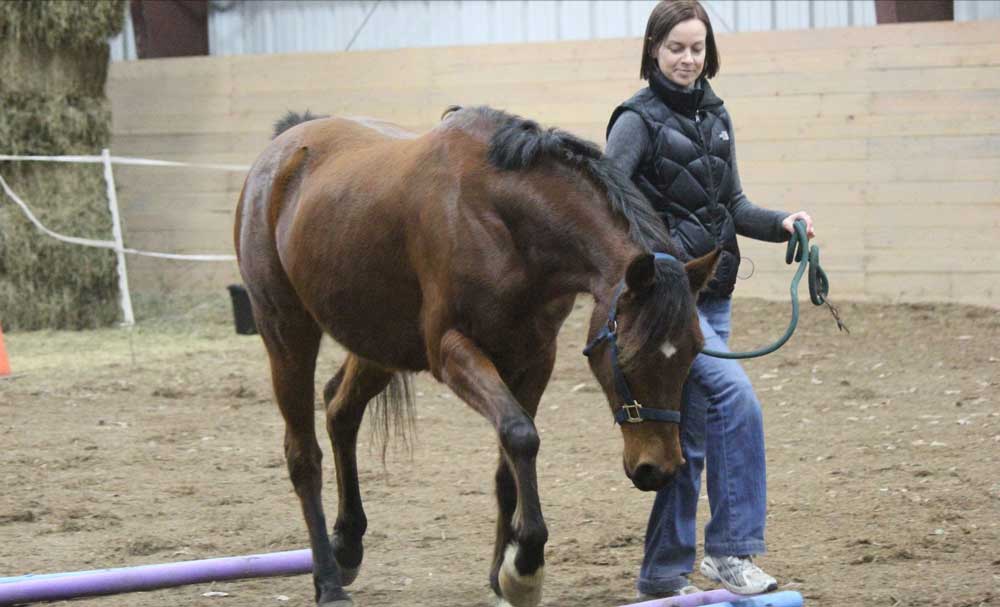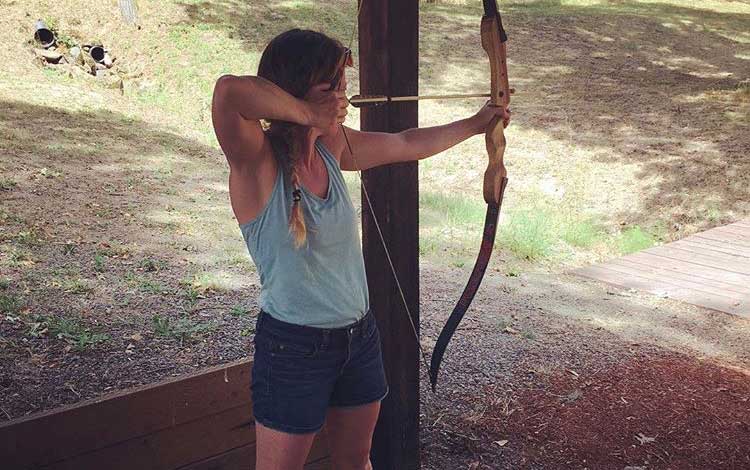Our focus is to help children, adolescents and adults to heal, energize, and become aware of their inner strengths. We achieve this by providing numerous therapeutic approaches and specialties within a safe environment. Additionally, we aim to fully listen to your concerns and customize a treatment plan specific to your needs.
Our goal is to help you grow from your struggles, heal from your pain, and move forward to where you want to be in your life. We can help improve symptoms of depression, anxiety, abuse and trauma, ADHD, autism, self-destructive behaviors, and stress. Please take time to review the information below so that you can get familiar with some of the different types of therapeutic modalities we can offer.
Equine / Animal Assisted Therapy
Equine assisted psychotherapy (EAP) is the combined use of horses, a licensed therapist and a horse specialist all working together with clients to address various individual psychotherapy treatment goals. This unique method enables clients to learn about themselves through their experience and relationship with horses. All of our staff who utilize EAP with clients are trained and certified through the Equine assisted growth and learning association (EAGALA) model. EAGALA is an internationally recognized model of psychotherapy. To learn more about EAGALA and better understand our approach please visit www.EAGALA.org

Ecotherapy
Ecotherapy, also known as nature therapy, is the applied practice of the emergent field of ecopsychology. An ecotherapist understands that people are part of the web of life, and approaches clients from the perspective that our psyches are not isolated or separate from our environment. As ecotherapist we pay attention to our clients relationship with the more then human world and the ways this impacts them. Some may even consider the natural world to have its own psyche, and as such we foster a relationship of mutuality and connection with the living systems we are a part of. The majority of the work we do with clients at Heron Hill takes place outdoors. Connection with earth and its systems are at the core of ecotherapy. We utilize the environment we are a part of to explore themes and treatment goals, and to help clients feel more connected to their environment.

Art Therapy
Art Therapy is an integrative mental health and human services profession that enriches the lives of individuals, families, and communities through active art-making, creative process, applied psychological theory, and human experience within a psychotherapeutic relationship. Art Therapy, facilitated by a professional art therapist, effectively supports personal and relational treatment goals as well as community concerns. Art Therapy is used to improve cognitive and sensory-motor functions, foster self-esteem and self-awareness, cultivate emotional resilience, promote insight, enhance social skills, reduce and resolve conflicts and distress, and advance societal and ecological change. To learn more visit arttherapy.org
EMDR
EMDR (Eye Movement Desensitization and Reprocessing) is a psychotherapy that enables people to heal from the symptoms and emotional distress that are the result of disturbing life experiences. Repeated studies show that by using EMDR therapy people can experience the benefits of psychotherapy that once took years to make a difference. It is widely assumed that severe emotional pain requires a long time to heal. EMDR therapy shows that the mind can in fact heal from psychological trauma much as the body recovers from physical trauma. When you cut your hand, your body works to close the wound. If a foreign object or repeated injury irritates the wound, it festers and causes pain. Once the block is removed, healing resumes. EMDR therapy demonstrates that a similar sequence of events occurs with mental processes. The brain’s information processing system naturally moves toward mental health. If the system is blocked or imbalanced by the impact of a disturbing event, the emotional wound festers and can cause intense suffering. Once the block is removed, healing resumes. To learn more visit EMDR.com
Family Therapy
Family therapy helps family members improve communication and resolve conflicts. In family therapy, you will learn the skills you need to get through the stressful times and to deepen relationships with one another. We understand that often our individual challenges don’t exist in a vacuum. Therefore it is recommended that any minor in our program participate in family therapy at some point during their treatment. You may work to generally improve conflict between parents and children, or issues in the family system that are impacting the child. Family therapy can also be recommended or useful for folks struggling with troubled relationships or to address specific issues such as marital or financial problems, or the effects of substance abuse or a mental illness on an entire family. Families in therapy will learn new ways to interact and overcome unhealthy patterns for the benefit of the entire family.
Group Therapy
Group therapy is a form of psychotherapy in which one or more therapists treat a small group of clients together as a group. Group therapy can be a useful addition to individual therapy and can often be recommended to our clients. Group therapy can help normalize the experiences we are having, and can help us remember that we are often not alone in what we are feeling or experiencing. Group therapy can also provide opportunities to give and receive support and help clients relate to others in healthier ways, At Heron Hill we offer a few different types of group therapy. Some groups are skill based, in which psycho-education and tools are offered to help navigate specific issues, topics or areas where clients may be struggling. These groups can be lead by our skills trainers or therapists. We also at times offer psychotherapy process groups which are always led by therapist, and provide clients opportunities to explore the ways they navigate relationships through the group process.
Trauma-Informed Yoga
Several of our professional staff are trained yoga teachers, with advanced training in trauma informed yoga. We offer a trauma informed yoga group as well as individual work with therapists and skills trainers. Trauma informed yoga helps clients explore the sensations of the body that trauma can often overwhelm us or disconnect us from. In return we have seen yoga help clients build a larger window of tolerance to feeling and an ability to discern needs and ways to regulate their nervous system. We love experiential ways that our clients can grow, and heal. We believe in making yoga and mindfulness practices approachable and accessible. We navigate from the perspective that as long as you can breathe you can practice yoga. Yoga and other mindfulness tools are utilized to help our clients gain skills and experience their world in a more embodied way.
Canine / Animal Assisted Therapy
Animal-Assisted Therapy, or AAT, is a mental health counseling approach that involves incorporating an animal(s) as a therapy partner. The animal works with the mental health professional to guide the client and provide growth and healing. At Heron Hill Daisy ( a sweet golden retriever) works with her mom Crisse who is an early childhood specialist. In Canine-Assisted Therapy the mental health professional utilizes a specially trained dog to assist during sessions. Dogs have been bred for centuries to respond to the emotional state of humans and be exceptionally tuned in to our needs and reactions. They have no secret agendas. They are spontaneous, friendly and like to play. Much like many of the forms of animal assisted therapy on the farm they are an opportunity for clients to explore how they navigate relationships, as well as provide a potentially safe environment for us to explore feelings and open up in more vulnerable ways.
Horticulture Therapy
Horticultural therapy (also known as social and therapeutic horticulture or STH) is defined by the American Horticultural Therapy Association(AHTA) as the engagement of a person in gardening and plant-based activities, facilitated by a trained therapist, to achieve specific therapeutic treatment goals. The visual aesthetics of plants are known to elicit feelings of inner peace, which generates positive emotions toward a meaningful appreciation of life. Direct contact with plants guides the individual’s focus away from stress enhancing their overall quality of life. At Heron Hill we have a garden that clients have an opportunity to work with both skills trainers as well as therapists to explore therapeutic goals and metaphors, along with skills that they can take with them into their every day life.

Archery / Slack Line
At the farm we strongly believe in experiential approaches to growth and healing. Our archery range is utilized by skills trainers and therapists to work with clients. Both archery and our slack line are wonderful examples of ways that clients can pay attention to how we approach goals, challenges, patience, presence and many other aspects of our human experience. Each of these experiential activities can be an opportunity for clients to get direct experience navigating new approaches to challenges in healthier or more sustainable ways. All of our staff who utilize archery with clients are trained and certified archery instructors.

Brainspotting
Brainspotting is a somatic trauma therapy developed by EMDR practitioner David Grand in the early 2000s. Much like EMDR, Brainspotting is a physiological treatment that uses eye positioning to access and process the felt sense of traumatic memories and negative self-concepts.
From the Brainspotting website:
“Brainspotting is a powerful, focused treatment method that works by identifying, processing and releasing core neurophysiological sources of emotional/body pain, trauma, dissociation and a variety of other challenging symptoms.
Brainspotting functions as a neurobiological tool to support the clinical healing relationship. There is no replacement for a mature, nurturing therapeutic presence and the ability to engage another suffering human in a safe and trusting relationship where they feel heard, accepted, and understood.
Brainspotting gives us a tool, within this clinical relationship, to neurobiologically locate, focus, process, and release experiences and symptoms that are typically out of reach of the conscious mind and its cognitive and language capacity.
Brainspotting works with the deep brain and the body through its direct access to the autonomic and limbic systems within the body’s central nervous system. Brainspotting is accordingly a physiological tool/treatment which has profound psychological, emotional, and physical consequences.”
Find more information, research, and videos at https://brainspotting.com/
Play Therapy
Play Therapy, a modality of child therapy, is a powerful tool for addressing behavioral and emotional challenges. Play therapy differs from regular play in that the therapist helps children to address and resolve their own problems. Play therapy builds on the natural way that children learn about themselves and their relationships in the world around them. Through play therapy, children learn to communicate with others, express feelings, modify behavior, develop problem-solving skills, and learn a variety of ways of relating to others. Play provides a safe psychological distance from their problems and allows expression of thoughts and feelings appropriate to their development. Play is used therapeutically to help children better process their experiences and develop more effective strategies for managing their worlds. At Alliance Counseling our therapists utilize a variety of play therapy modalities including traditional play, sand tray, expressive arts and nature based play activities. For additional information regarding play therapy and its benefits, please see Play Therapy Makes a Difference!